- There wouldn't be a very large incumbent advantage for KMT legislators;
- Tsai's increase in vote share over 2012 would be uniform across districts;
- The electorate voting for president would look essentially the same as that voting for the legislature.
I spent much of the last post defending assumption 1. Here I want to relax assumption 2, that Tsai's vote share is going to increase uniformly across all districts. That's certainly not going to be true in a technical sense, but to what degree will it be violated? The conventional wisdom about Taiwan's electoral geography is that the the north is more solidly blue than other parts of Taiwan, so the KMT's vote share will decline less in Taipei than in, say, Tainan or Pingtung. But how much less is hard to predict.
Let me put the punch line up front: I don't think Tsai's increase in vote share is going to vary much by locality. Evidence follows after the jump.
I've played around with several measures of cross-district variation in swing to use in a forecasting model. The best in theory would be variation in the shift toward the DPP in the most recent 2014 local executive elections. The problem I've found with that data is there's so much noise in those results that using them requires either dropping half the cases or making some heroic assumptions about the composition of the electorate to get even a regional-level adjustment. (For instance, there was huge variance in turnout in 2014 compared to 2012: it dropped by 17% in New Taipei, 15% in Hsinchu, and 14% in Taoyuan, but by only 2% in Taichung. And a majority of the executive races weren't strictly two-way blue-green competition but included third-party candidates or pseudo-independents like Ko Wen-je in Taipei.)
So instead, I'm going to use the change in party vote shares between the 2008 and 2012 presidential elections to estimate how the national swing varied by locality between the last two elections. Below, I've reproduced the change in each party's presidential vote share from 2008 to 2012.
- Tsai Ing-wen won 4.24% more in 2012 than Hsieh Chang-ting did in 2008;
- Ma Ying-jeou won 7.00% less in 2012 than he did in 2008;
- James Soong won 2.77% in 2012, and there was no third candidate in 2008.
As expected, Taipei is a prominent outlier: Tsai only won 2.58% more of the vote in 2012 than Hsieh did in 2008. Judging from these data, Taipei does, indeed, seem to be more solidly blue than other parts of the island, in the sense that voters there are less willing in the aggregate to support the DPP. (Intriguingly, Kaohsiung is also an outlier: Tsai gained only 3.68% vs 4.11% for the south as a whole.)
Taiwan's Nationalized Party System
But let's put this variation in some comparative perspective. The DPP's swing ranges only from 2.58% to 4.95% across all jurisdictions, and it's positive everywhere (and, conversely, the swing is negative everywhere for Ma Ying-jeou.) In other words, even though the party lost the presidential race, the DPP did better in 2012 than in 2008 in every single county and city in Taiwan.
By contrast, consider the United States, which also has a highly institutionalized two-party system with a presidential executive. Taiwan's partisan shift from 2008 to 2012 was remarkably consistent across the island even by American standards. For instance, when Barack Obama won in 2008, a majority of counties in Oklahoma, Arkansas, Louisiana, Tennessee, and Kentucky became redder (i.e. more Republican) even as the country as a whole became bluer (i.e. more Democratic), as this great map from the New York Times shows:
Adjusting the 2016 Swing by Locality
All of this is a long way of saying, I think past elections give us quite a bit of useful information about how future elections are likely to play out across all districts in Taiwan. I'm going to exploit this fact to adjust the forecast for 2016.
The basic idea is simple: assume Tsai's vote share will increase in each locality in the same proportion it did from 2008 to 2012. Her share in Taipei increased at only 0.608 of the national average (2.58/4.24), so if we assume the same thing will happen in 2016, a 10% increase nationally would result in only a 6.08% increase for her in Taipei. At the other extreme, Tsai's vote share in Pingtung increased by 4.88%, which was 1.152 of the national average (4.88/4.24). So a 10% increase nationally would correspond to a 11.52% increase in Pingtung.
If we make this adjustment for each legislative district, we get the following ranking of seats:
Of course, we don't know how closely the swing in 2016 will track that from 2008-2012, or even whether it's better to use this adjustment than just assuming it'll be the same across all districts. Readers can probably come up with many plausible ways the increase in Tsai's vote could vary geographically that depart from what I've assumed here. But we should be reassured by how closely this forecast tracks the previous one: something really weird would have to happen for a Tsai victory to come from a shift toward the DPP in only one part of Taiwan, and for that not to lead to a DPP win in the legislative election as well.
In the bigger picture, the DPP is still on track to win about 50 district seats if the swing is 10%, with Nantou 1 being the last district in this scenario to go green. There's no indication here that variation in the swing across districts will be large enough to affect the aggregate election results, which should see the DPP win a comfortable majority in the Legislative Yuan.
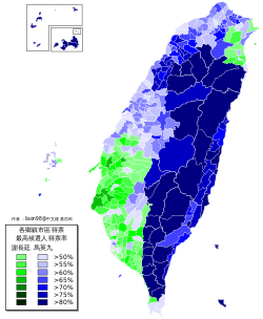
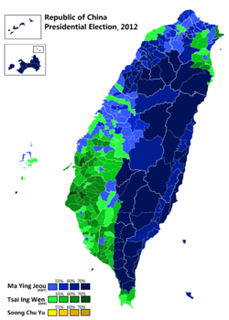
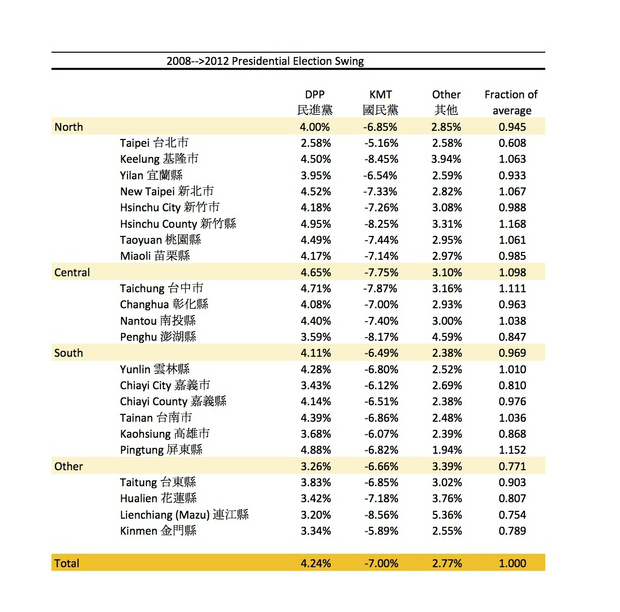
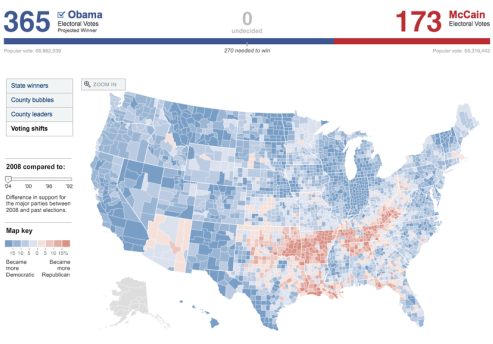
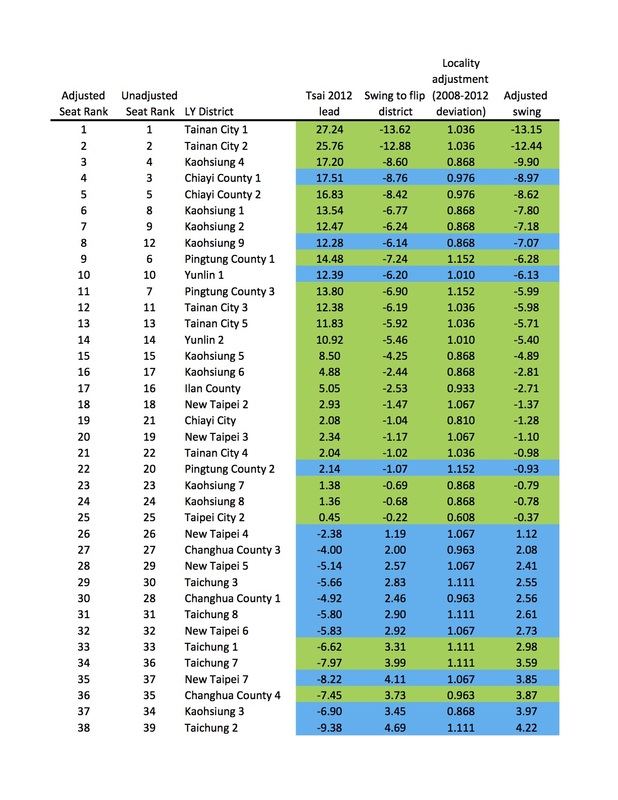
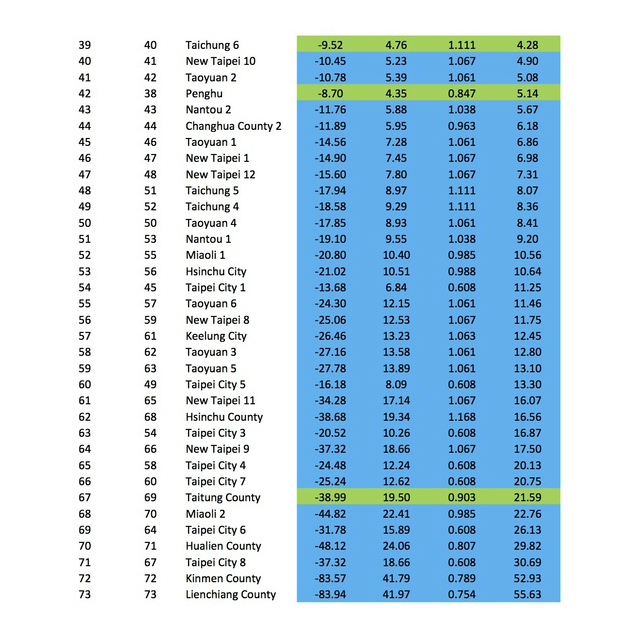
 RSS Feed
RSS Feed
